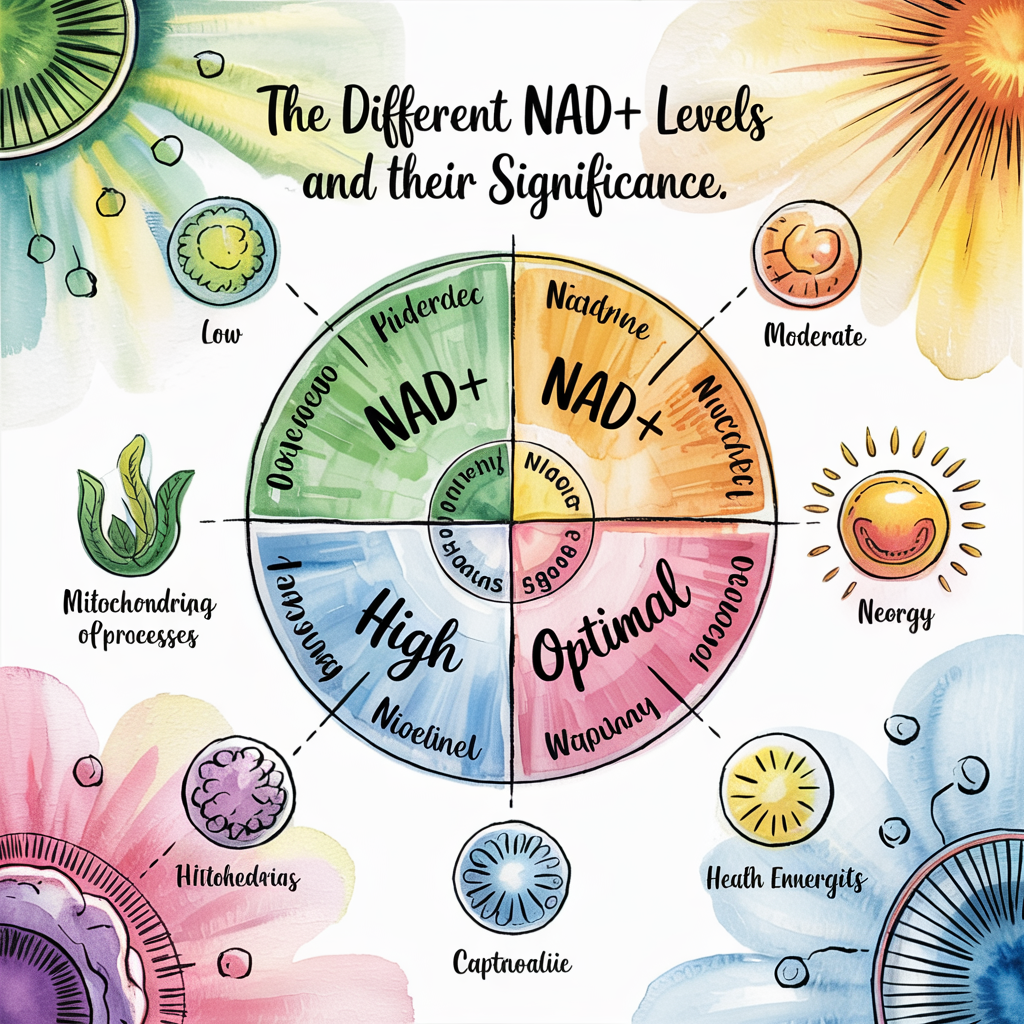The different NAD+ levels and their significance
It’s important to understand that NAD+ levels play a crucial role in overall health, and advancements in testing are providing more detailed insights. Here’s a breakdown of NAD+ levels and their significance.
Understanding NAD+ and Its Significance:
- NAD+ Basics:
- Nicotinamide adenine dinucleotide (NAD+) is a coenzyme found in all living cells. It’s essential for energy production, DNA repair, and various cellular processes.
- As we age, NAD+ levels naturally decline, which is linked to age-related health issues.
- NAD+ and Health:
- Research indicates that NAD+ is involved in:
- Metabolic function
- Neurodegenerative diseases
- Cardiovascular health
- Cellular repair
- Therefore, understanding NAD+ levels can provide valuable information about an individual’s health status.
- Research indicates that NAD+ is involved in:
Interpreting Test Results:
- Key Considerations:
- NAD+ levels can vary significantly between individuals.
- Factors such as age, lifestyle, and underlying health conditions can influence NAD+ levels.
- Therefore, test results should be interpreted in the context of an individual’s overall health.
- Significance of Levels:
- Lower NAD+ levels are often associated with:
- Increased risk of age-related diseases
- Metabolic dysfunction
- Reduced cellular energy
- Conversely, maintaining healthy NAD+ levels may support:
- Improved energy levels
- Enhanced cellular repair
- Better overall health
- Lower NAD+ levels are often associated with:
Our Testing Capabilities:
- We used the technology allows for the measurement of all four forms of NAD, which provides a more complete picture of NAD metabolism than only measuring NAD+. This detailed analysis can help healthcare professionals better understand an individual’s health and develop personalized interventions.
- The testing can be carried out from small blood samples. This makes testing more accessible.
- Relating Test Results to Overall Health Status:
- Comprehensive Assessment:
- NAD+ test results should be considered alongside other health markers.
- Healthcare professionals can use this information to assess an individual’s risk for various health conditions and develop personalized plans.
- Potential Applications:
- NAD+ testing may be useful for:
- Assessing the effectiveness of NAD+ boosting therapies
- Monitoring age-related health decline
- Identifying individuals at risk for metabolic disorders
- NAD+ testing may be useful for:
- Importance of Professional Guidance:
- It’s crucial to consult with a healthcare professional to interpret NAD+ test results and understand their implications for individual health.
- NAD levels are believed to correspond with several metabolic and degenerative diseases.
- It is important to remember that NAD+ research is ongoing, and our understanding of its role in health is constantly evolving.





